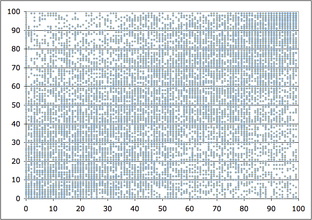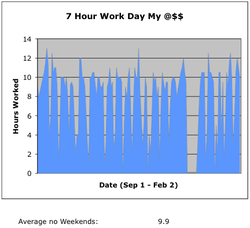The high-stakes nature of this test has been affecting not just schools and curriculum, however. The cheating scandal is a perfect example of how individuals can make poor decisions in order to save themselves or their schools. The analysis of this scandal is causing an uproar to demoralize and de-professionalize the education profession even more than it already is.
The decision by the PA Department of Education to restrict the administration of the PSSA to those who do not have a direct connection to the tested students is the most recent attack on the trust of teachers and also - in my opinion - degrades the relationships with our students. As proctor for the past two years I have known students that took the test seriously and those who did not. While I generally had a positive, respectful relationship with those who did, I usually did not for those who didn't. In fact, the worst test-takers were the ones I had never met before.
If this last-minute decision affects schools like I think it will, I imagine classrooms across Philadelphia where teachers are battling with students who don't respect them and will not perform their best because they feel slighted for not having their teachers in the room with them.
Some might criticize my viewpoint and say I carry low expectations for these students. To those people I would ask you to spend 6 months developing a relationship with a low-income student in a neighborhood school in Philadelphia. Then tell that student someone entirely different who they do not know is going to proctor them on an exam that has so much emphasis on it that it might change the entire school. When you see their reactions, you will know why I point out this flaw.
While I cannot hope for the DOE to change their mind and retract their policy change, I do hope our students are able to work under this decision and it does not affect schools as I think it will. And to all readers who feel slighted by this decision in anyway, call Tom Corbett, Governor of PA, at 717-787-2500 and complain.




 RSS Feed
RSS Feed
